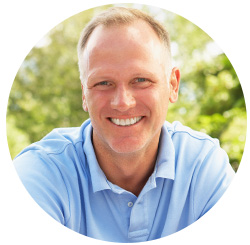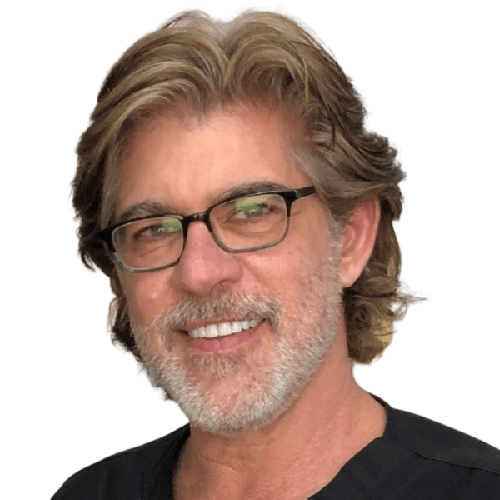North Carolina Bioidentical Hormone Therapy for Men
Andropause and Low T Specialists in North Carolina
 Welcome to the North Carolina Andropause Doctors Directory, featuring a variety experienced Male Hormone Doctors and Andropause specialists located in the Charlotte-Concord-Gastonia Metropolitan area and serving the surrounding areas of Mecklenburg County, Iredell County, Gaston County, Cleveland County, York County, Rowan County, Lincoln County, Stanly County, Union County, Chester County, and Cabarrus County!
Welcome to the North Carolina Andropause Doctors Directory, featuring a variety experienced Male Hormone Doctors and Andropause specialists located in the Charlotte-Concord-Gastonia Metropolitan area and serving the surrounding areas of Mecklenburg County, Iredell County, Gaston County, Cleveland County, York County, Rowan County, Lincoln County, Stanly County, Union County, Chester County, and Cabarrus County!
Despite the lack of attention to male hormonal imbalances over the years, many men suffer from deficiencies of androgens, which are male hormones. Testosterone is the primary male sex hormone, and it begins to decline once men hit their thirties. Following their thirties, testosterone will continue to decline by around 10% each decade, and once in their mid-forties to mid-fifties, it tends to take a steep drop. This phase, during which the dramatic decrease occurs, is known as Andropause, and most men will experience numerous symptoms that may include muscle atrophy, erectile dysfunction, hair loss on the scalp, groin, and under the arms, weight gain around the middle, lack of motivation, low libido, and depression.
Fortunately, North Carolina Andropause Doctors offer a natural alternative to living with the symptoms of male hormone decline and Low T. Male Hormone Replacement Therapy offers men suffering with the symptoms of andropause a way to regain optimal hormone balance and overcome the effects of age-related hormone decline.
Find North Carolina Bioidentical Hormone Doctors Near You:

Dr. Scott’s Restorative Health & Wellness

Integrity Wellness MD
Some of the conditions that can be improved with bioidentical hormone replacement include:
- Lower Libido
- Low libido is one of the first signs of hormone decline, and it is one of the first changes that men may notice with age related testosterone deficiency. Because testosterone governs sexual function and reproductive activities, decreased sexual desire can occur with lower testosterone. Bioidentical hormone replacement therapy can restore testosterone to the same healthy levels that were present during a man’s 20s and 30s in order to increase libido.
- Erectile Dysfunction
- ED can be another effect of low testosterone. While this can happen for many reasons, such as stress, poor emotions, an unhealthy diet or a lack of exercise, it is mostly temporary and lasts for a short period of time when it occurs due to lifestyle factors. Erectile dysfunction that occurs on a regular basis is most likely due to a testosterone deficiency. Testosterone directly affects reproductive functions, and if it is balanced, problems such as erectile dysfunction can disappear and sexual function can be restored.
- Unhealthy Moods
- Mood fluctuations can be due to testosterone fluctuations, which can create outbursts of anger, increased anxiety or feelings of sadness. This can be due to the role testosterone has in regulating blood sugar, or it can occur because of testosterone’s effect on brain chemistry. Testosterone can also affect memory and concentration, and if it is waning, men may not be able to remember things or have sharp cognitive functions. When testosterone levels are regulated, moods become more calm and balanced and cognitive functions can be improved.
- Decreased Muscle Mass
- Low muscle mass is another sure sign of low testosterone. Testosterone helps to build red blood cells, make proteins and maintain energy. Men experiencing low testosterone typically have less energy to put into workouts, and most men lose around 12-15 pounds of muscle mass during testosterone decline. Not only can testosterone build muscle and maintain energy, it helps men to have an abundant supply of overall energy.
- Weight Gain
- Weight Gain can occur with testosterone decline for a number of reasons. During a man’s 20s or early 30s, he can usually eat whatever he wants and gain little to no weight. This is because testosterone helps to increase metabolism, and it helps insulin to regulate blood sugar, which can aid the body in using food for fuel instead of storing it away as fat. However, this all changes with aging and testosterone decline, which can cause men to pack on pounds around the middle. Another reason for weight gain can be due to the loss of muscle. This is because muscle influences the burning of calories, and when muscle is abundant, fat stores are tapped in order to sustain energy.
- Fatigue
- Fatigue may result from the decline of androgens, which are male hormones. Male hormones such as testosterone not only affect the ability to have sex drive and function, but they affect the body’s overall energy and vitality. When these hormones decline, men may notice a lack of motivation, physical or mental exhaust, and a loss of vitality. Hormones also affect the way blood sugar is processed for energy in the body, and when they are in short supply, men may begin to feel lethargic, especially after eating. When hormonal functions are restored, energy and vitality can be returned to optimum levels.
- Hair Loss
- Losing hair on the scalp, under the arms or around the groin can be further evidence of testosterone decline. Because testosterone is responsible for the maintenance of body and facial hair, men can suffer from hair loss in these areas when testosterone levels decrease. Testosterone also influences hair follicles in the producing of hair on the scalp, and hair follicles receive their instructions to produce hair from testosterone. When testosterone declines, hair cells can die away due to cellular death and dryness. When testosterone is abundant, follicles can produce healthy hair, and hair loss can be slowed down.
- Fibromyalgia
- Fibromyalgia is an autoimmune disorder that is usually described as pain felt throughout the entire body, and the effects are usually experienced in the muscles, tendons, and other soft tissues. The pain may also feel like it affects the joints, and the pain generally begins at a specific area known as a tender point and then radiates outwardly. These tender points may include the shoulders, chest, back of the neck, lower back, hips, shins, elbows, or knees. Patients dealing with fibromyalgia can experience the pain as being a deep ache or shooting pain, and symptoms can arise in the morning upon waking, or they can last for the entire day. Hormone levels may adversely affect fibromyalgia because they determine how pain receptors are felt in the body.
North Carolina Andropause Doctors specialize in treating men of all ages for the many symptoms and conditions related to male hormone decline. Contact a North Carolina Andropause Doctor today to find out if Male Hormone Replacement is right for you. Stop suffering with the symptoms of andropause and reclaim a younger version of yourself with Male Hormone Replacement Therapy today. You can learn more about Male Hormone Replacement Therapy HERE.
- Serving the Areas of:
- The North Carolina Bioidentical Hormone Doctors featured on the North Carolina Bioidentical Hormone Therapy Directory are proud to serve the Charlotte-Concord-Gastonia Metropolitan Statistical Area and counties including Mecklenburg County, York County, Union County, Gaston County, Cabarrus County, Iredell County, Rowan County, Lancaster County, Lincoln County, Stanly County, and Chester County, as well as the communities of Charlotte, Concord, Gastonia, Rock Hill, Huntersville, Kannapolis, Indian Trail, Mooresville, Monroe, Salisbury, Matthews, Cornelius, Mint Hill, Statesville, Fort Mill, Shelby, Waxhaw, Harrisburg, Mount Holly, Albemarle, Stallings, Davidson, Belmont, Tega Cay, Lincolnton, Weddington, Kings Mountain, Wesley Chapel, Lancaster, Pineville, York, Unionville, Marvin, Clover, Cherryville, Bessemer City, and Chester, North Carolina.